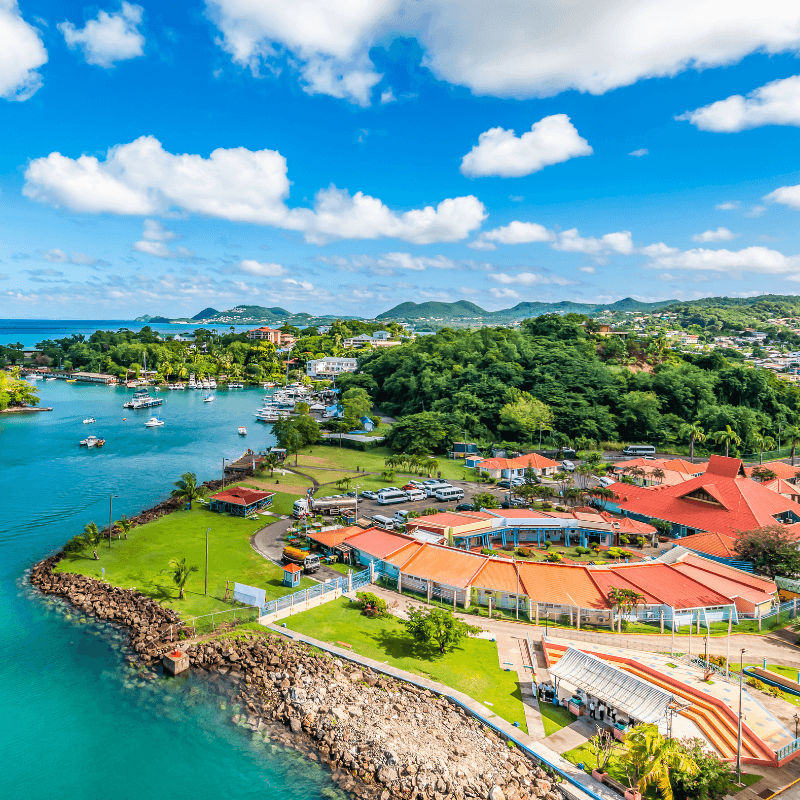As we enter the festive season and end 2021 under the long shadow of the pandemic and escalating climate crisis, the Caribbean and its people have demonstrated commendable resilience.
Looking ahead, this resilient spirit will be required more than ever if we are to create growth, generate precious jobs and provide opportunity for our people. This is especially needed considering the pandemic and existential threat we face from climate change are not going away. The issue to confront is whether we continue with the same policy prescriptions and approaches. Quite frankly, business as usual has not served us well and will not work in an equally or even more challenging 2022.
To build a resilient Caribbean, business must play a central and important leadership role in both driving economic recovery and creating climate-friendly growth. In essence, a strong and vibrant private sector is core to help manage and solve the challenges we face, which will in turn create opportunities for our people.
From my standpoint, I am aware that we cannot do everything given the already heavy burden carried by administrations across our Region. However, doing more of the same or nothing at all are not viable options. Therefore, as a Region we must build on the core asset of our capable and resilient people so clearly demonstrated in these testing times to realise three practical goals that will help fast-track recovery and lay the basis for a resilient Caribbean.
1. Regional Capital Market
Caribbean countries are just too small to navigate an increasingly complex and challenging global landscape. Consequently, regional integration cannot be an option for small open economies as we have in our Region to survive in a global architecture where the giants are determining the rules of the game. There is indeed strength in numbers from both geopolitical and economic perspectives. I am also conscious of the need and scale to attract foreign direct investment at a level that can create the jobs and opportunity. Pooling our countries as one investment destination in areas such as AgTech or renewables can help achieve the scale required. Simultaneously, we need to facilitate the flow of capital from within the Region, so Caribbean people can have a stake in an enterprise regardless of location.
In a 2020 survey of around 450 enterprises carried out by the Caribbean Export Development Agency and Caribbean Development Bank, businesses across the Region cited lack of access to finance as their biggest constraint. Yet still at the end of 2021, we do not have a regional capital market allowing the free flow of capital across the Caribbean that can give the average citizen a stake in an enterprise in another jurisdiction. Whereas I recognise that foreign direct investment is vital to attract both technology and capital, there is an equally critical role for finance that is already within the Region. Consequently, we need to unlock capital already available in the Caribbean. Advancing a Regional Capital Market in the coming year will have a transformational impact on unleashing precious indigenous financing for business.
2. Improve the ease of doing business in the Caribbean
Quite simply, business cannot help drive recovery and play a leadership role in creating jobs and opportunity in the current business environment. It is difficult to do business in the Caribbean. Apart from Jamaica and St Lucia, the region is in the bottom half of the 200 countries globally assessed by the World Bank in its 2020 Ease of Doing Business Report. We need to look at areas where we can get quick wins such as registering a business. In Singapore, it takes one day. In Mauritius, it is usually not more than one week. Except for Jamaica, Caribbean jurisdictions lag behind the rest of the world, taking weeks or even months to register and start a business. A simple first step is pulling out all the stops to make it easier for national, regional and indeed international enterprises to register and start a business in our Region.
3. Expand non-tourism related services as the next frontier for Caribbean business
Our economies have been historically connected with the production of commodities. As we sought to move away from traditional products such as sugar and rice, tourism became the mainstay of much of the Caribbean. As subsequent natural disasters such as Hurricanes Irma and Maria in 2017 and COVID-19 have demonstrated, this leaves us vulnerable whenever there is a major shock to the global economy. Therefore, the time is now to capitalise on our rich human capital and transition to non-tourism related services.
For example, there is huge potential to grow or break into markets like business process outsourcing and information and communication technology, which saw a 6 percent increase in exports in the pandemic according to the UN Conference on Trade and Development (UNCTAD), valued globally at USD 676 billion in 2020. Creative industries also hold great promise to market the talent of our people in areas such as music and the business of carnival. We at the Caribbean Export Development Agency have identified this as a priority over the next three years. To have a lasting impact, the services sector must receive the support it needs in terms of policy, resources and partnerships.
To effect transformation requires vision backed by action. Building a resilient Caribbean and creating jobs and opportunity for our people cannot be achieved overnight given the multiplicity of constraints we face. At the same time, there are areas we need to treat with the highest priority, hence my three wishes for 2022.
